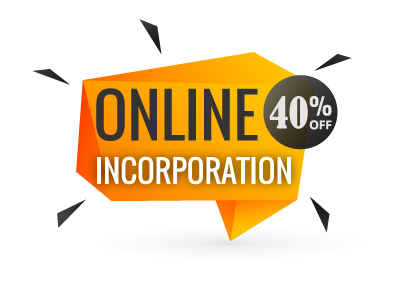Starting a business in the food sector in Canada implies having several choices. From deli shops which can sell their products to a small community to larger stores or even supermarkets, it all depends on the amount of money the future business owner is willing to invest.
Starting a business for selling food, beverages and tobacco in Canada is not complicated, however, it must go through several licensing phases which take longer to complete. Below, our company formation specialists in Canada present the main steps and licenses required upon the opening of a business for selling food, beverages and tobacco.
Business registration when setting up a Canadian food, beverages and tobacco shop
We would first want to point out that setting up a shop for selling food, beverages and tobacco usually implies registration at a local level. In Canada, this means registering a company with the office of the Trade Register in the province the business will operate in.
Our company registration agents in Canada can help with the incorporation of any type of structure which suits the needs of local and foreign entrepreneurs opening a business for selling food, beverages and tobacco.
A shop for selling various types of food products, beverages and tobacco will usually take the form of a limited liability company in Canada. Once it is registered, it must apply for various licenses in order to start operating. However, the location must also undergo specific inspections in order to make sure that it complies with the storage regulations imposed by the local authorities.
Requirements for selling food and beverages in Canada
Under the Safe Food for Canadians Law, a business selling food and beverages must comply with certain requirements which ensure the safety of the products to be sold in this country. Among these regulations are:
- the regulations related to storing foodstuff and beverages, which must be kept in appropriate conditions as required by the manufacturer;
- the regulations related to storing fruit and vegetables in appropriate conditions;
- the regulations related to storing and handling fish and crustaceous products;
- the regulations related to the packaging and labeling of food products and beverages.
Canadian shops selling alcoholic beverages must also obtain specific licenses for these activities. Additionally, they are required not to sell alcohol to underage persons.
Before being granted the licenses for selling food and beverages, a company must also undergo specific inspections which will be based on preventive controls of the premises.
There are several types of licenses which can be obtained by companies selling food, beverages and tobacco in Canada, however, it is important to know that those selling such products locally must only apply for import licenses if the products they intend to sell are imported. They will be exempt from obtaining such licenses for intra and interprovincial trade of goods.
We remind foreign investors that if they want to open a business for selling food, beverages and tobacco in Canada, they will need to respect the regulations imposed by the province in which they will operate. This means that specific licensing requirements are applicable, which is why it is best to request the services of our local consultants when setting up such a company.
Selling tobacco in a Canadian shop
When opening a business for selling food and beverages, it is also possible to sell tobacco and related products on the premises. However, the business owner will be required to apply for a special license for selling tobacco. Also, other requirements must be complied with.
When starting a business for selling food, beverages and tobacco in Canada, one must comply with the following requirements related to the sale of tobacco:
- the business owner must obtain a tobacco retail dealer’s license for the respective location;
- the purchase of tobacco and other products must be done with authorized companies only;
- respect the regulations of not selling tobacco to persons under the age of 19 and request IDs for persons with the age of under 25;
- keep separate accounting books and records for the purchase and sale of tobacco products.
The Canadian shop is also required to display warning messages related to the sale of tobacco products at the entry in the location. Also, the opening and closing hours must be displayed at the entry.
If you want to open a business for selling food, beverages and tobacco in Canada and need help, do not hesitate to contact us. We specialize in offering business registration services across all provinces in Canada.
Please contact us if you want to set up a business in Canada for the sale of food, drinks, and tobacco. Our consultants can advise on the health regulations that are imposed to all businesses in this industry.
All your stores must comply with basic standards – the Cleaning Industry Management Standards. Food standards are imposed by the Canadian Food Inspection Agency.
If you are not in the country, but you want to set up a company here, please contact our specialists for information on the immigration formalities you must complete before your arrival in the country.
In most of the cases, unless exemptions are granted, you must apply for suitable investment visas, such as the Owner Operator Program in Canada, available for investors who fully own a business or who own at least 50.1% of it.
Foreigners are also welcomed to contact us if they want to immigrate there for employment purposes. There are many work visas which vary based on the level of employment (salary, responsibilities, expertise and experience).
There is also the possibility to relocate from a foreign company, through the Intra Company Transfer in Canada, a program that is available for the employees of multinational companies.


